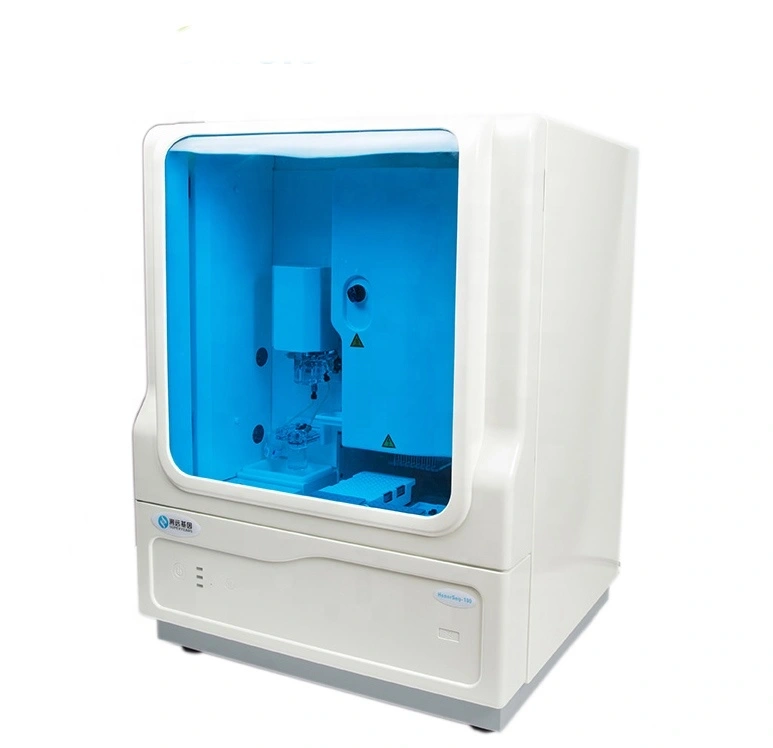The Feature of Genetic analyzer Gene sequencing MLPA
April 18, 2024
DNA Analyzer Display

Certainly! Here are some key features and applications of these Genetic Analyzer tools:
1. **Genetic Analyzer:**
- **Features:**
- Capable of high-throughput analysis: Genetic analyzers can process a large number of genetic samples simultaneously, making them essential for research and diagnostic laboratories.
- Fluorescent detection: Utilizes fluorescent dyes to visualize and quantify DNA, RNA, or proteins, allowing for precise analysis and measurement.
- Automation and data analysis: Many genetic analyzers are equipped with software for automated data collection and analysis, streamlining the process of genetic analysis.
- **Applications:**
- DNA sequencing: Determining the precise order of nucleotides in a DNA molecule.
- Genotyping: Identifying genetic variations among individuals or populations.
- Forensic analysis: Used in criminal investigations for DNA profiling and identification.
2. **Gene Sequencing:**
- **Features:**
- High accuracy and precision: Modern gene sequencing technologies offer unprecedented accuracy in determining the DNA sequence of genes, enabling precise genetic analysis.
- Next-generation sequencing (NGS): NGS platforms can sequence millions of DNA fragments concurrently, allowing for rapid and comprehensive genetic analysis.
- Single-molecule sequencing: Some technologies can directly sequence single DNA molecules, reducing errors introduced by PCR amplification.
- **Applications:**
- Medical diagnostics: Identifying genetic mutations associated with hereditary diseases and cancer.
- Evolutionary biology: Studying genetic diversity and evolutionary relationships among species.
- Personalized medicine: Tailoring medical treatment and therapies based on an individual's genetic profile.
3. **MLPA (Multiplex Ligation-dependent Probe Amplification):**
- **Features:**
- Multiplexing capability: MLPA allows the simultaneous amplification of multiple DNA sequences in a single reaction, providing efficiency in detecting copy number variations.
- High sensitivity and specificity: It can detect small changes in DNA copy numbers and is particularly useful for identifying gene deletions or duplications.
- Quantitative analysis: MLPA provides quantitative data, enabling the accurate measurement of gene copy numbers and the identification of genetic abnormalities.
- **Applications:**
- Genetic disorder testing: Identifying DNA copy number variations associated with various genetic disorders, such as muscular dystrophy and microdeletion syndromes.
- Cancer research: Detecting amplifications or deletions of specific genes in tumor samples, aiding in cancer diagnosis and prognosis.
- Pharmacogenomics: Evaluating gene copy number variations that may impact drug metabolism and response.
These features and applications highlight the diverse and complementary roles these Genetic Analyzer For MLPA play in advancing genetic research, clinical diagnostics, and personalized medicine.






